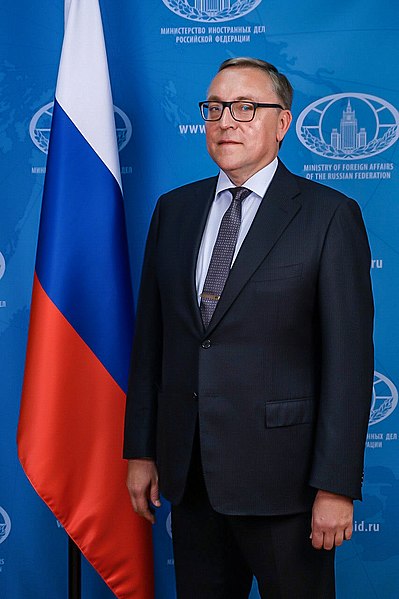Sponsored Content
Illegal Annexation: Russian Ambassador in Vienna Summoned
Like several other European countries, Austria summoned Russian Ambassador Dmitry Lyubinsky yesterday to tell him that Russia's illegal annexation of Ukrainian territory was an unacceptable violation of international law. The ambassador defended himself and spoke of referendums with free expression of will in full accordance with the norms and principles of international law.
 Russian Ambassador Dmitry Lyubinsky was summoned after the Russian Federation annexed several territories in Ukraine. / Picture: © Wikimedia Commons; www.rusemb.at, CC BY 3.0
Russian Ambassador Dmitry Lyubinsky was summoned after the Russian Federation annexed several territories in Ukraine. / Picture: © Wikimedia Commons; www.rusemb.at, CC BY 3.0
In a joint action by several EU Member States, the Republic of Austria yesterday summoned the Ambassador of the Russian Federation to send a signal against the annexation, which is contrary to international law.
According to the Foreign Ministry, Ambassador Dmitry Lyubinsky was informed that Austria strongly condemns and resolutely rejects the illegal annexation of the Ukrainian…
or Log In
Fast News Search





